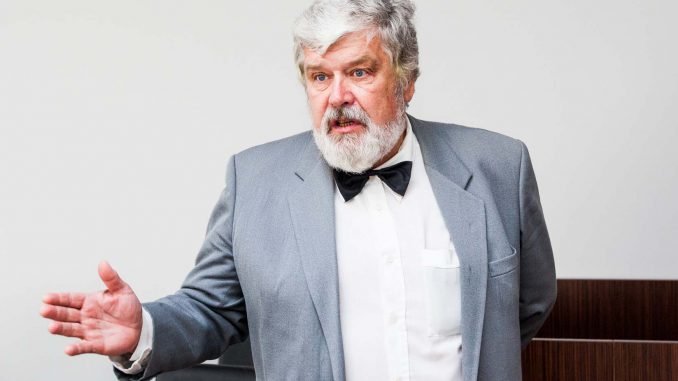
Ivanov, 69, told the court he was a graduate of Warsaw University who headed the Yedinstvo organization in Lithuania. The organization included persons of various nationalities and worked in Klaipėda, Šiauliai and Kaunas. In his words, the first meeting of the group was held on Nov. 3 of 1988, and the participants authorized Ivanov to undertake organizational issues, as he already had experience from the development of the Solidarity movement in Poland.
“We only used political ways of fighting. This was my principle. I categorically refused to create power structures and groups, as the country had the Ministry of Interior Affairs in charge of security. Our activities included protest actions, petitions and newspaper publications,” Ivanov said.
He assured that the organization had no contacts with the Communist Party headed by Mykolas Burokevičius, adding that the communists strongly disliked Yedinstvo.
Speaking about the developments of Jan. 13 of 1991, Ivanov said it was “clear that a political play was taking place.”
In July 1997, Ivanov was sentenced to a year in prison for slander of the victims of 13 January 1991. In his book Lithuanian Prison, he stated that the casualties of the attempted 1991 coup were a Lithuanian forgery and that the Soviet army had not killed a single freedom defender in Vilnius.
Ivanov served his sentence in a penitentiary in Alytus, southern Lithuania.
More than 60 persons have been charged with war crimes and crimes against humanity. The case went to court this January. It is one of the biggest criminal trials in the history of independent Lithuanian courts in terms of its volume and number of defendants. All of the defendants except two are standing trial in absentia.
In the early hours of 13 January of 1991, 14 unarmed civilians were killed by the actions of Soviet troops outside the Press Center, the Television Tower and the Lithuanian Radio and Television Building.

Be the first to comment